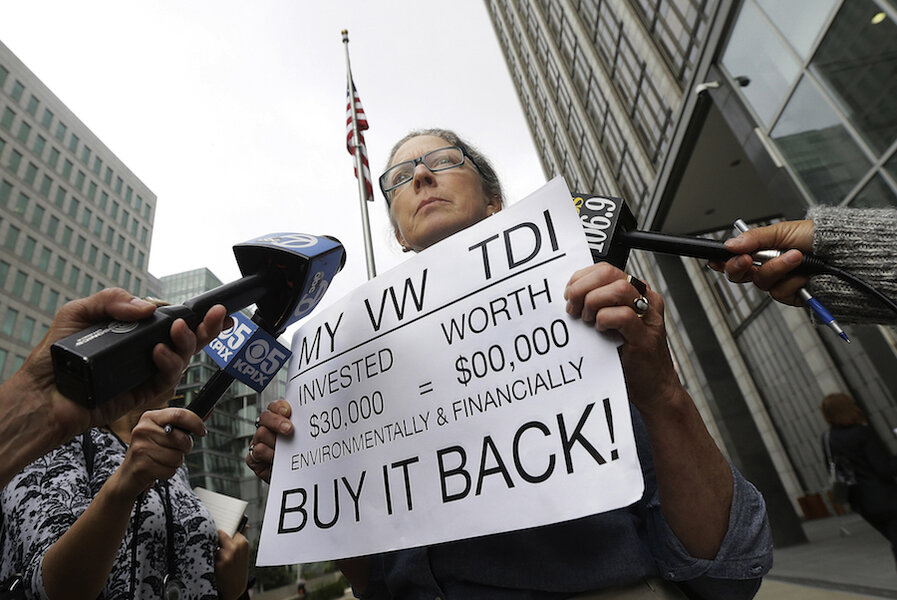Not just VW: Mitsubishi, Daimler, and others probed for emissions cheating
Loading...
The Volkswagen diesel-emission cheating scandal has led to increased scrutiny of other carmakers by regulatory agencies around the world.
So while VW works to hammer out the details of a settlement with the U.S. government, multiple investigations and probes involving other companies are now underway.
Last week, Mitsubishi admitted to overstating fuel economy on 620,000 cars sold in Japan over the last three years.
The company manipulated test procedures to contrive fuel-economy figures that were 5 to 10 percent higher than what could be achieved by cars sold to customers, according to Bloomberg.
The discrepancy was discovered by Nissan, which sold 468,000 of the affected cars under its own brand.
So far, the only models affected are apparently the Mitsubishi eK Space and eK Wagon, and the Nissan Dayz and Dayz Roox—none of which are sold in the U.S.
All are tiny "kei" cars that slot into a special insurance and tax category in Japan.
While that scandal may be limited to Japanese-market models, Reuters reports that the U.S. National Highway Traffic Safety Administration (NHTSA) did request fuel-economy information from Mitsubishi.
Meanwhile, Mercedes-Benz parent Daimler is now conducting an internal investigation into emissions reporting.
The probe was requested by the U.S. Justice Department, according to a Daimler statement that gave no other details.
In Europe, PSA Peugeot Citroën offices in France were raided by government fraud investors there.
The raid was reportedly part of an emissions probe. PSA claims all of its cars comply with current European standards, and says it is cooperating fully with the investigation.
But as awareness of discrepancies between controlled test results and real-world usage grows, the news is not good for makers across the board whose cars have passed those specific emission tests.
A recent U.K. probe that tested real-world emissions in diesel cars found that virtually all of them exceeded the legal limits, according to The Guardian.
Researchers found a major disparity between laboratory results and real-world testing in 37 models from multiple manufacturers.
While all cars registered legal emissions levels in the lab, some some emitted up to 12 times the legal limit of pollutants on the road.
Yet none of the vehicles tested had "defeat devices" designed to cheat on laboratory tests, noted the U.K. Department of Transport, which ordered the probe.
Unlike Volkswagen, none of these manufacturers are accused of breaking any laws. The only legal requirement was the laboratory test—which every car passed.
A separate European test also found that several carmakers had used a legal loophole that allows reduced use of emission-control equipment under certain circumstances, ostensibly to protect engines.
Germany's transport authority questioned whether this was necessary, and now 630,000 cars in that country are being recalled to tweak their emission-control software.
The recall includes models not only from Volkswagen, Audi, and Porsche, but also from Mercedes-Benz and the German Opel division of General Motors.







